June News Bulletin
Your quarterly update on the latest news from MOWAA
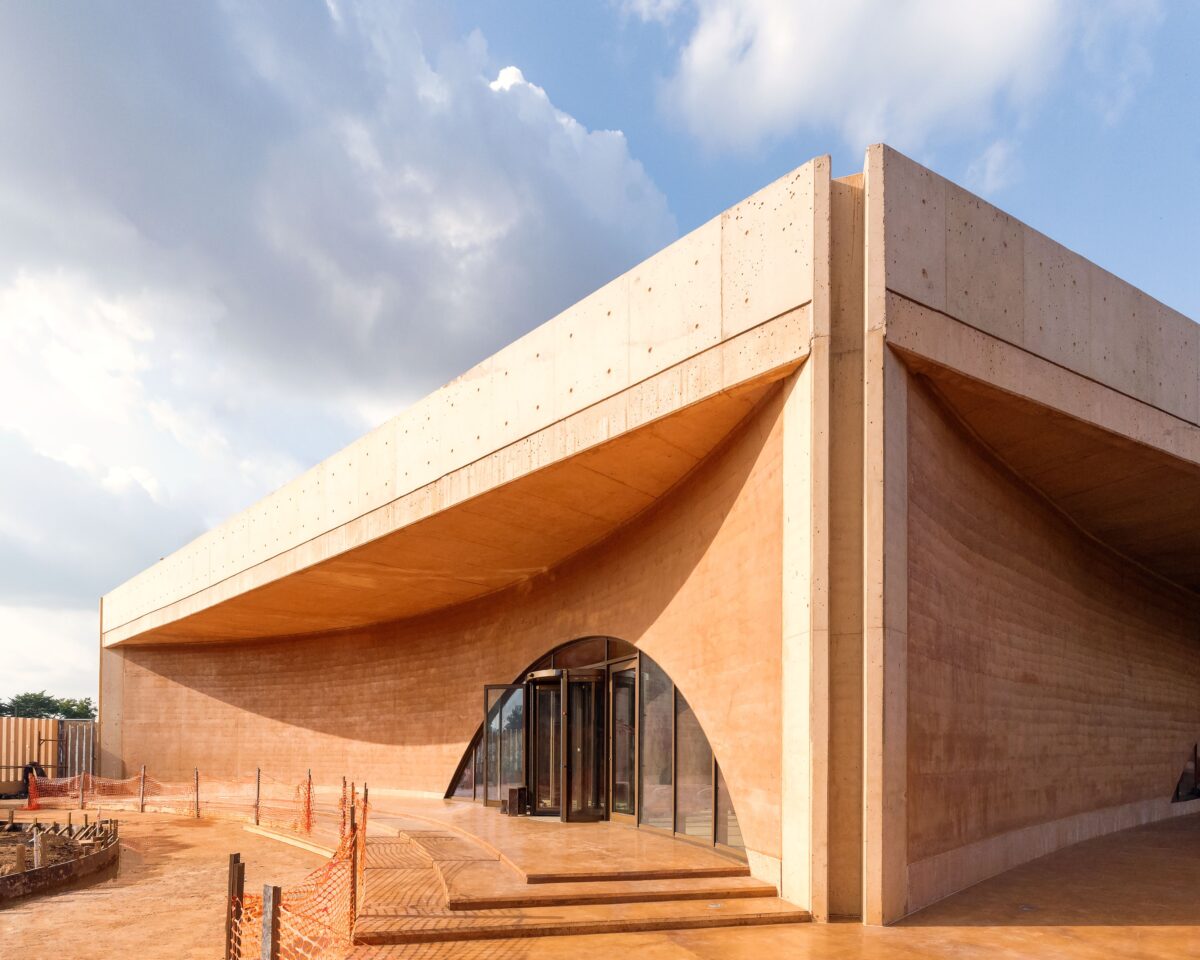
The Campus
Construction Update
With just a few months to go until the opening of our Campus in November, final preparations are underway at the MOWAA Institute. The central collections storage area is now ready for use, internal systems are being finalised, and fit-out work is progressing across the conservation and archaeology labs, office areas, auditorium, and exhibition spaces.
The Atrium, the Institute’s foyer and home to our historical collections display, is also taking shape. Exhibition cases are currently being manufactured in Milan and are scheduled to arrive in Benin for installation in mid-July. Digital screens for the entrance of the Institute are now complete and will soon be shipped for installation.
The MOWAA Campus remains on track to open this November with our inaugural exhibition, an expanded edition of Nigeria Imaginary from the 2024 Venice Biennale, accompanied by a dynamic programme of workshops, talks, and artist-led events.
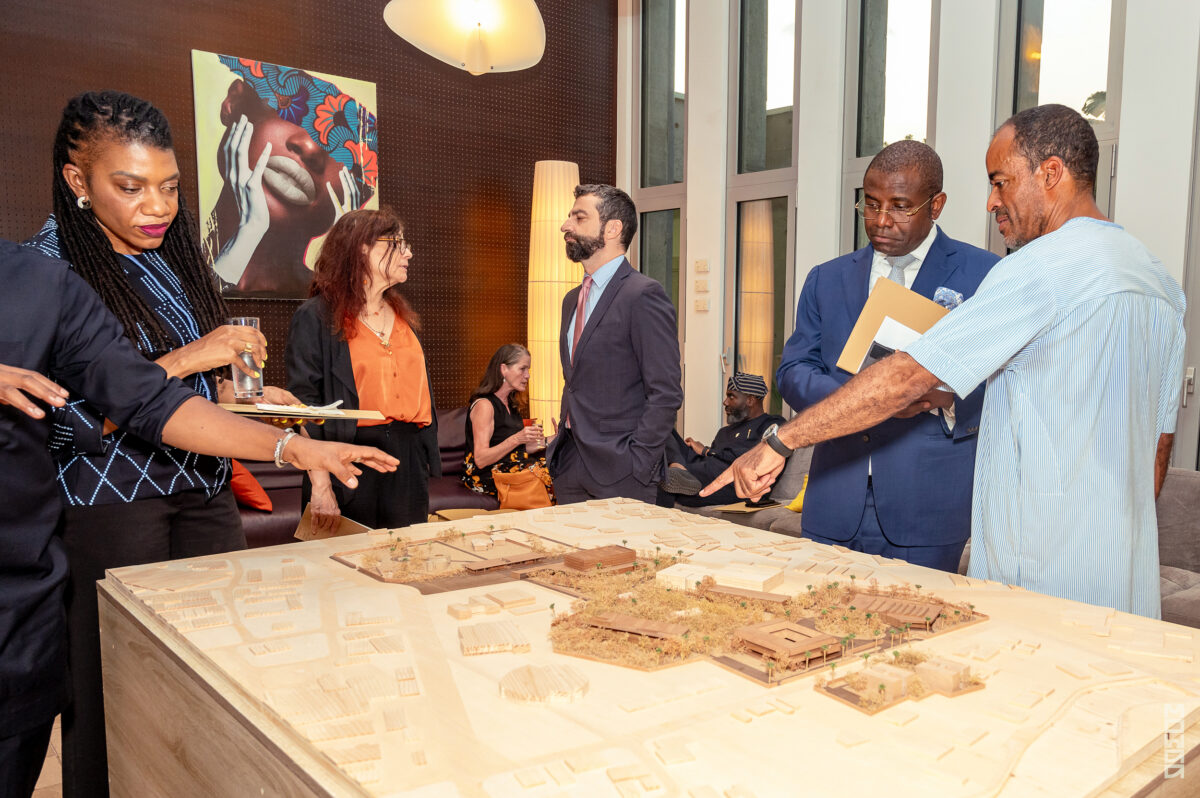
Partnerships and Collaborations
MOWAA x French Embassy in Nigeria
Momentum is building behind MOWAA’s mission, with recent milestones signalling a strong wave of institutional and diplomatic support. In May, we marked the launch of our partnership with the Embassy of France in Nigeria hosting a reception in Abuja that brought together ambassadors, cultural attachés, and key members of Nigeria’s arts and heritage community. Beyond a celebration, the event served as a platform for strategic engagement, laying the groundwork for new conversations with missions across Europe, the Middle East, and beyond.
The partnership launches this month with an Arts Archive Training Programme, delivered in collaboration with the French Ministry of Culture. The first phase offers delegates from the Centre for Black and African Arts and Civilization (CBAAC), the National Commission for Museums and Monuments (NCMM), Yaba Art Museum (YAM), and the Centre for Contemporary Art, Lagos (CCA Lagos), immersive exposure to world-class archival practices in Paris. In the second phase, taking place on the MOWAA Campus, participants will apply their learning to support their respective archival and museum development goals.
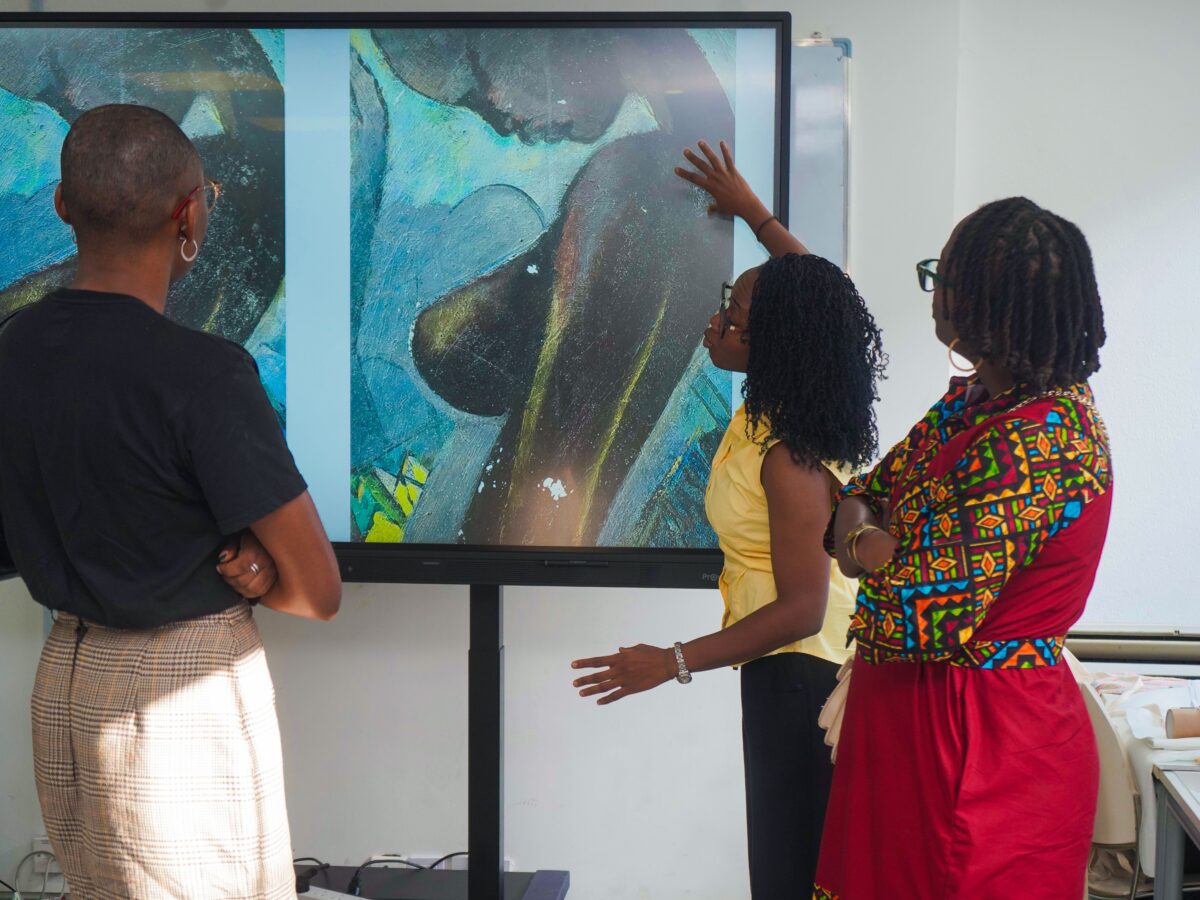
Conservation in Practice
In April, we formalised two groundbreaking agreements with Nigeria's National Gallery of Art (NGA) and the Centre for Black and African Arts and Civilization (CBAAC). These partnerships reflect a shared commitment to preserving Nigeria’s cultural heritage, with plans to digitise significant collections and advance research and exhibition development.
Over the next five years, the collaborations will also facilitate institutional exchanges and hands-on conservation training, strengthening capacity across the sector and creating opportunities for a new generation of cultural practitioners.
To launch the partnership, we hosted an Open Lab Session in Lagos this May, offering art enthusiasts a behind-the-scenes look at the early stages of conserving two landmark works of Nigerian modernist painting. Led by MOWAA conservator Yetunde Odediran, in collaboration with experts from Julia Nagle Conservation (London), the session took place at Goethe-Institut Nigeria and welcomed a small public audience to observe and learn about the conservation process as these artworks underwent treatment for the first time.
The event provided a rare glimpse into how elements such as pigment, brushwork, and damage patterns, including flaking and UV infiltration, can reveal vital clues about a painting’s history. These details offer insight not only into the artist’s technique but also the environmental and material conditions under which the work was created.

A Living Collection in Formation
We are deep into our multi-year lending partnership with the National Commission for Museums and Monuments (NCMM), an initiative aimed at showcasing exceptional Nigerian collections while advancing local conservation practice through targeted training and infrastructure investment.
This collaboration sits alongside a growing number of private loans and donations to MOWAA, spanning from antiquities to modern works, all of which will contribute to our inaugural and historic collections display at the Institute. As part of this effort, NCMM has agreed to loan a remarkable selection of objects to MOWAA, ranging from the celebrated artworks from Ife to notable pieces from Tada. Our opening will mark the first time many of these significant works are on public view, offering visitors an unprecedented opportunity to engage with these objects up close.
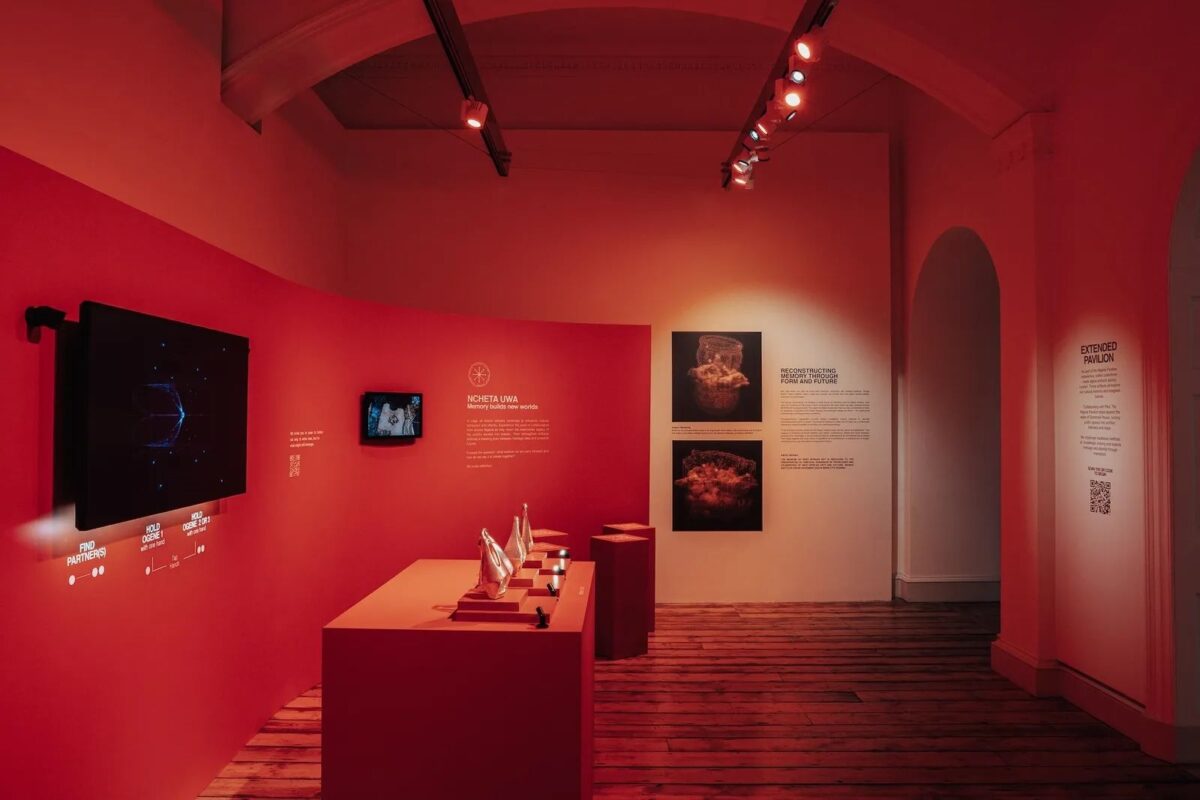
London Design Biennale
MOWAA is a research partner in Nigeria’s inaugural federal pavilion at the 2025 London Design Biennale, Hopes and Impediments, taking place from June 5–29 2025 at Somerset House. As part of this historic debut, MOWAA’s Digital Heritage team contributed 3D scans of Nok and Igbo-Ukwu artefacts, using photogrammetry and digital modelling. Titled Reconstructing Memory Through Form and Future, the striking visual installation reinterprets ancestral design traditions, offering a compelling dialogue between heritage and innovation. Curated by Nigerian-American designer Myles Igwebuike, the pavilion received a Special Mention from the Biennale’s International Jury and was named one of the ‘six standout pavilions’ by Wallpaper magazine.
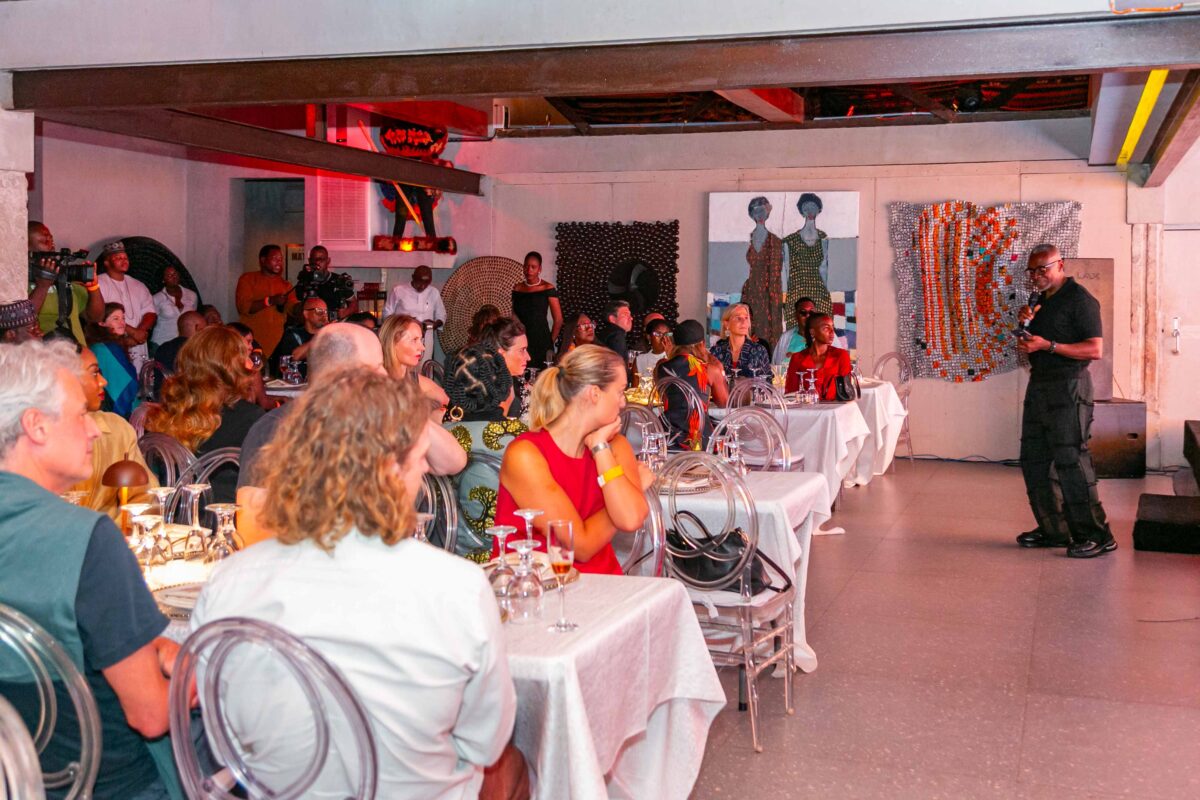
Fundraising and Development
An evening in Lagos
In April, Ike Chioke, MOWAA Development Board Member, hosted an intimate fundraising dinner in Lagos, convening leaders from across finance, philanthropy, and the creative industries. The evening sparked vital conversations, and new financial commitments, towards supporting MOWAA’s next chapter.
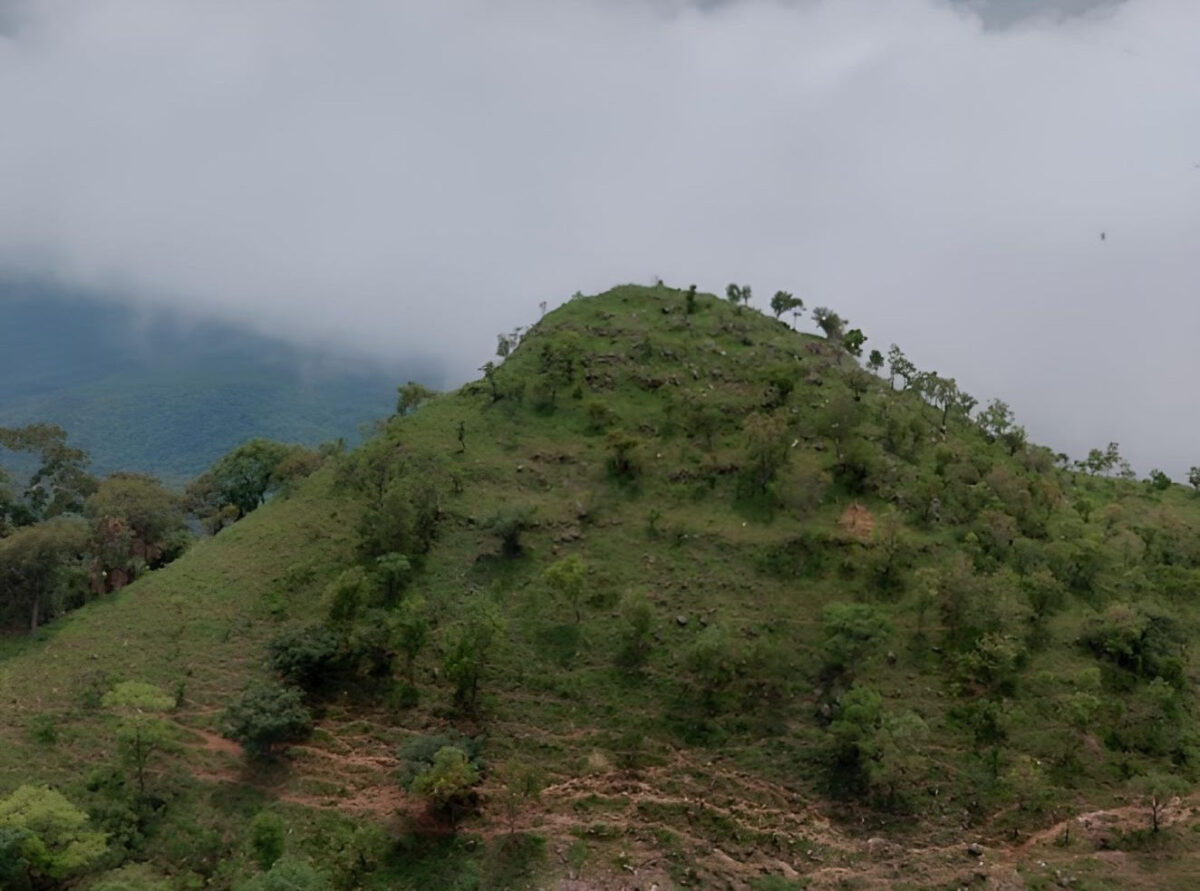
Archaeology Spotlight
Gashaka-Gumti Field Notes
In late April, the MOWAA team joined colleagues from National Commission for Museums and Monuments (NCMM) and Cameroon for two weeks of intensive fieldwork in Gashaka-Gumti National Park, Nigeria’s largest protected landscape. Over the course of the survey, more than 600 archaeological sites were identified, six square kilometres of Lidar data collected, and dozens of oral histories recorded across the park.
Members of the MOWAA archaeological team documented the work of potters and blacksmiths in several local communities, offering insight into the craft traditions that remain deeply embedded in daily life. This research lays the groundwork for a future World Heritage Site nomination—an important milestone in preserving this extraordinary cultural and ecological landscape.

Unearth Fellowship 2025
This year’s Unearth Fellowship Programme kicked off in May, offering 16 early-career professionals and postgraduate students the opportunity to engage in research and preservation, in partnership with NCMM and the British Museum. The fellows are currently in the first phase of the six-month programme and have participated in a series of online courses designed to build their foundational knowledge of African archaeology, given their diverse academic backgrounds across 12 disciplines.
Additionally, the fellows participated in our Lunch & Learn series, which brings together archaeologists and heritage professionals for interactive online sessions exploring the evolving practice of archaeology, community engagement and expansive approaches to engaging with history. Three of the eight sessions were held exclusively for the fellows, while the remaining were free and open to the public, drawing an average of 60 participants from across Africa and beyond.
A notable session led by the London-based research agency Forensic Architecture explored strategies for communicating archaeological projects to non-technical audiences through storytelling, exhibitions, film, and digital media. Using two case studies, the team demonstrated how archaeological finds can function as forensic investigative tools, while also showcasing innovative approaches to presenting findings in ways that resonate with diverse audiences.
In August, the fellows will travel to our Campus in Benin City for three weeks of immersive learning, where they will learn about and contribute to the MOWAA Archaeology Project.
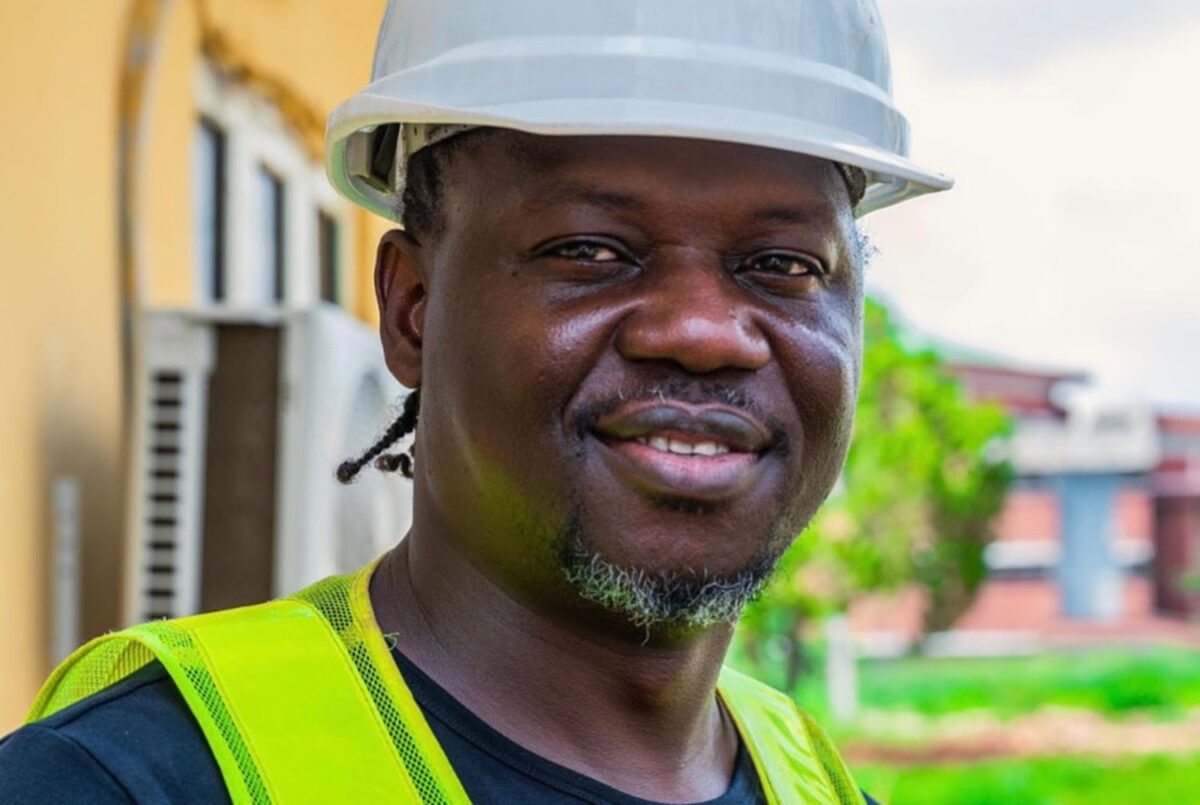
Dan David Prize
Dr Abidemi Babatunde Babalola has been named a 2025 winner of the Dan David Prize, the world’s largest history prize, awarded to scholars and practitioners with outstanding contributions to the study of history and the human past. Serving as an anthropological archaeologist at the British Museum, Dr Babalola uses material science to reshape our understanding of glass production and technological innovation in premodern West Africa, with a focus on classical Ile-Ife in present-day Nigeria. He currently leads the MOWAA Archaeology Project in Benin City, overseeing the most extensive research and pre-construction excavation ever conducted in the city, while mentoring and training a new generation of Nigerian archaeologists.